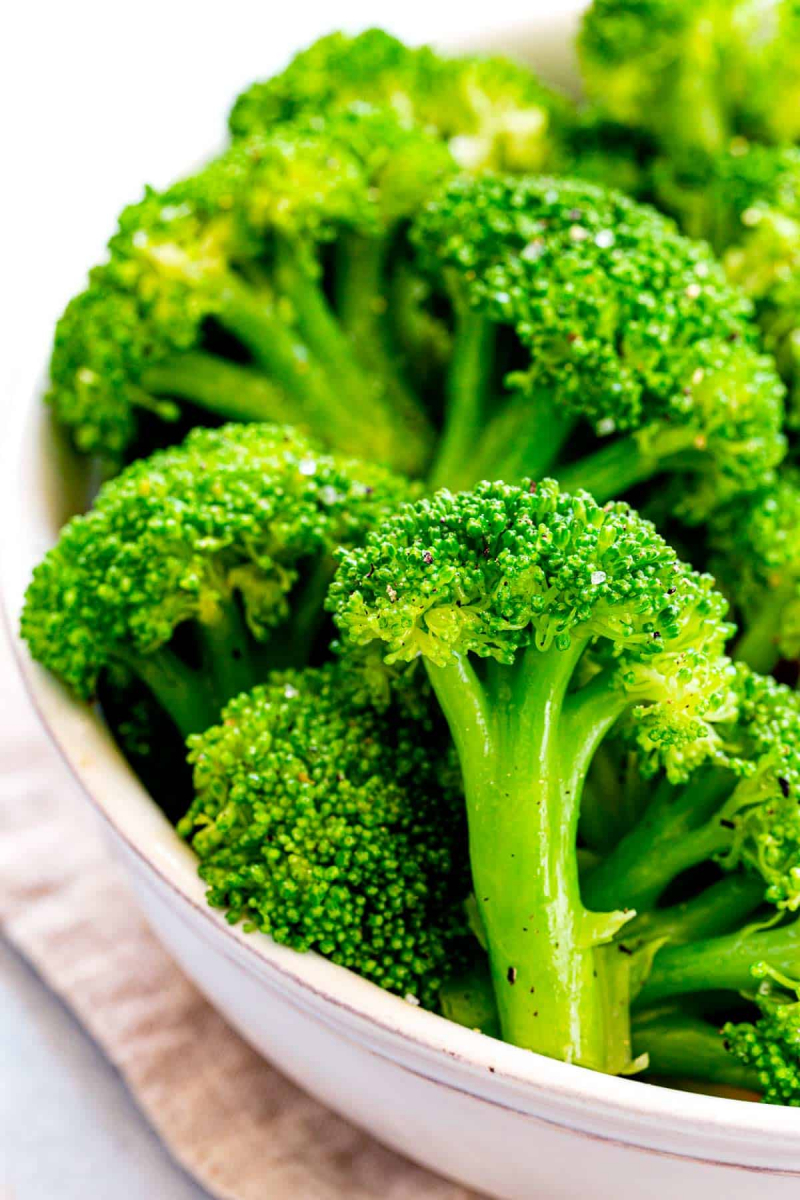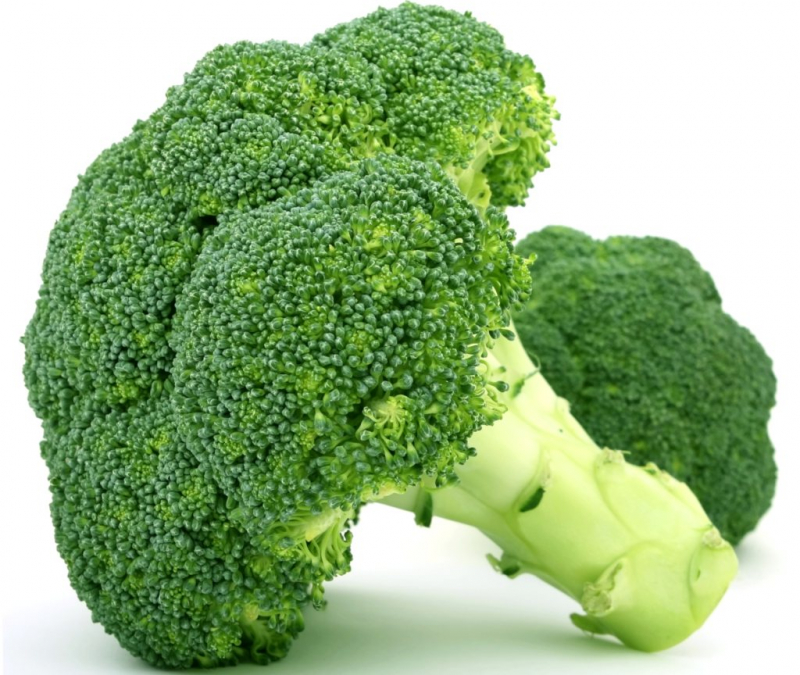Broccoli

Broccoli is a vegetable that has a cabbage-like green plant with a large flowering head, stalk, and little leaves. Broccoli belongs to the Italica cultivar group of the Brassica oleracea species. Broccoli has large, dark green flower heads that are arranged in a tree-like structure branching out from a thick, light green stalk. The pile of flower heads is surrounded by a ring of leaves. Broccoli was created by crossing landrace Brassica crops in the northern Mediterranean in the sixth century BCE. Broccoli originated in Roman Empire basic cultivars and was most likely improved by artificial selection in the southern Italian Peninsula or Sicily.
Vitamins, minerals, and antioxidants abound in broccoli. Broccoli can be cooked in a number of different ways. Try cooking with canola or olive oil in whatever recipe you're making, not just to enhance flavor but also to boost the vitamin K level. About 10 mcg of vitamin K is included in a spoonful of each. 100 grams of cooked broccoli contains 141 mcg of phylloquinone or roughly 118 percent of the daily value.
Broccoli includes several natural compounds that scientists are still learning about, in addition to all of the vitamins and minerals it contains. Sulforaphane, a sulfur molecule, is the most prominent of these, and it may aid in the treatment of diseases such as diabetes and cancer. As a result, it can aid in the prevention of a variety of ailments, providing numerous health benefits.











